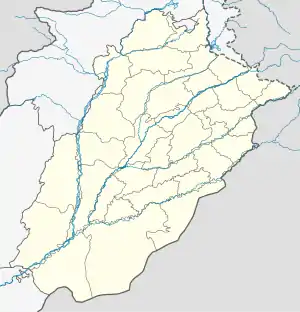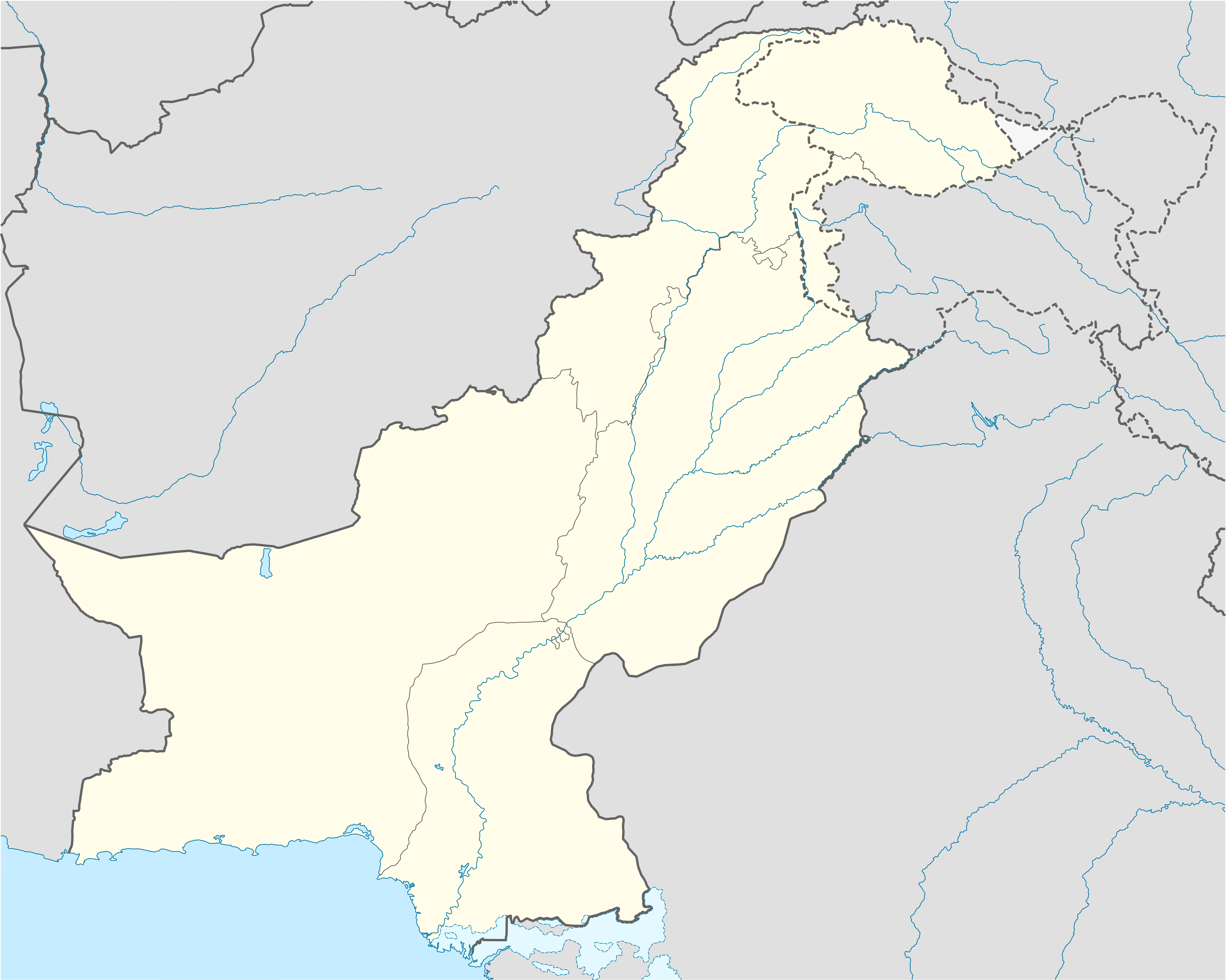Jauharabad
Jauharabad/Joharabad (جَوہرآباد) is a small city and the district headquarters of District Khushab District Sargodha Division in the Punjab province of Pakistan. Jauharabad was established in 1953 as a planned city. Jauharabad is named after Maulana Muhammad Ali Jauhar, a prominent figure from the Pakistan independence movement. It is included in the Khushab district of Punjab, located in the Northern part of the country. Key locations near Jauharabad include the Salt range to the north and Khushab, the Jhelum River, and the Mianwali District to the west.It is a well planned city. The city is renowned for its famous personalities that have served the country in various fields. It has many educational institutions that providing facilities of education, training and research.The prominent of them include District Public School and Inter College(DPS&IC),University of Education Lahore (subcampus) , Government Technical College , Jauhar Memorial Public School, Superior College,Aspire College Punjab College. It has many administration offices such as DPO Office DCO Office.It has a Gymkhana (Jauhar Gymkhana Khushab) under construction where facilities of Tennis, Gymnasium are availableLibrary a Public Library (Sarwar Shaheed Public Library). It also has District Headquarters Hospital and there are many private hospitals for the facilitation of public. It also has a sugar mill named Jauharabad Sugar Mills (JSML).
Jauharabad
جَوہرآباد | |
|---|---|
town | |
 Jauharabad  Jauharabad | |
| Coordinates: 32°17′31″N 72°16′25″E | |
| Country | |
| Province | |
| Division | Sargodha |
| District | Khushab |
| Population | |
| • City | 91,254 |
| Time zone | UTC+5 (PST) |
| Calling code | 0454 |
| Number of Union Councils | 6 [2] |
| Punjab Government Website | |
Jauharabad was developed in 1953 under a master plan
The famous Islamic thinker, scholar and Jewish convert to Islam, Muhammad Asad (formerly Leopold Weiss) — author of The Road to Mecca, The Message of the Qur'an and Principles of State and Government in Islam, stayed at Jauharabad in the 1950s. He resided at the bungalow of the town's prominent resident, Chaudhry Niaz Ali Khan; who on the advice of Allama Muhammad Iqbal, had established the Dar ul Islam Trust Institutes first in Pathankot, India, after Pakistan's independence, in Jauharabad.
Etymology
The Urdu word 'jauhar' translates to 'gem' in English, but the city was named in honor of the renowned Pakistani freedom activist, Maulana Mohammad Ali Jauhar.
History
Jauharabad was developed in 1953 under a master plan. Because of its planned design including open spaces and wide avenues, the district headquarters of Khushab District was shifted from Khushab city to Jauharabad. Construction of the 26th Safari Park of Pakistan is about to end.
The famous Islamic thinker, scholar and Jewish convert to Islam, Muhammad Asad (formerly Leopold Weiss) — author of The Road to Mecca, The Message of the Qur'an and Principles of State and Government in Islam, stayed at Jauharabad in the 1950s. He resided at the bungalow of the town's prominent resident, Chaudhry Niaz Ali Khan; who on the advice of Allama Muhammad Iqbal, had established the Dar ul Islam Trust Institutes first in Pathankot, India, after Pakistan's independence, in Jauharabad.[3]
Geography
Jauharabad lies at the confluence of the Thal Desert and the Potohar in flat agricultural territory immediately south of the Salt Range, which marks the end of the Pothohar Plateau and the start of the Punjab plains. The Jhelum River passes 7 km southeast of Jauharabad and on the west of Jauharabad lies the Thal Desert. On the east of Jauharabad is the Khushab Reserve Forest, spread over approximately 4 km2. The Khushab Nuclear Complex is a plutonium production nuclear reactor and heavy water complex located 30 kilometres south of Jauharabad, in the larger Khushab District.
Notable people
- Malik Shakir Bashir Awan, President Tanzeem ul Awan, Politician, Lawyer, Social Activist
- Ahmad Nadeem Qasmi, journalist, writer
- Chaudhry Niaz Ali Khan, civil engineer, agriculturalist, and philanthropist who founded "Dar ul Islam Movement" and "Dar ul Islam Trust"
- Malik Masood Nazir Rajar Chairman
- Sohail Warraich, prominent print and media Journalist.
- Sumaira Malik, former Pakistani government minister
- Wasif Ali Wasif, writer, poet and scholar
References
- "Punjāb (Pakistan): Province, Major Cities, Municipalites [sic]& Towns - Population Statistics, Maps, Charts, Weather and Web Information".
- www.nrb.gov.pk - /zila_membership/ Archived 2012-04-15 at the Wayback Machine. Retrieved 5 April 2006.
- Azam, K.M., Hayat-e-Sadeed: Bani-e-Dar ul Islam Chaudhry Niaz Ali Khan (A Righteous Life: Founder of Dar ul Islam Chaudhry Niaz Ali Khan), Lahore: Nashriyat, 2010 (583 pp., Urdu) ISBN 978-969-8983-58-1